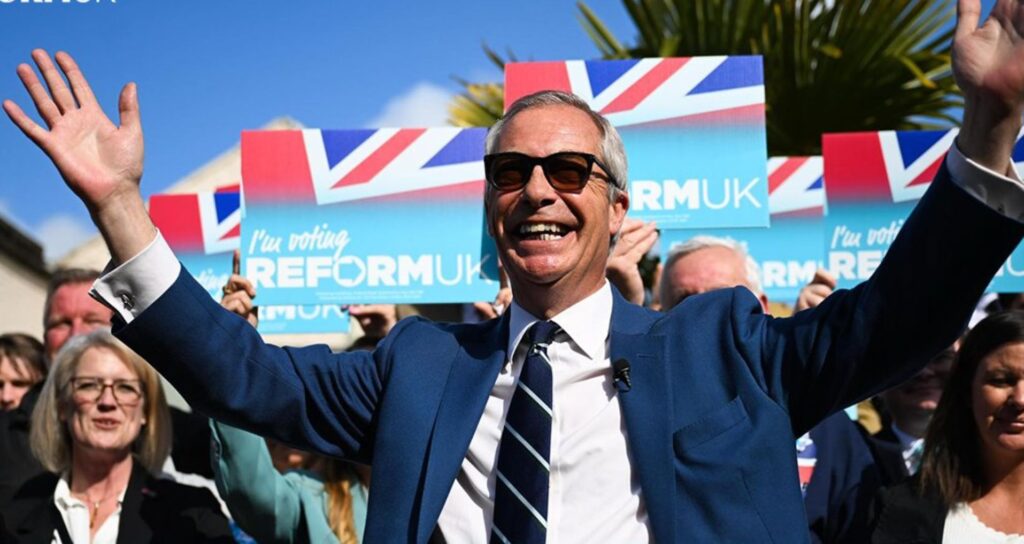With the SNP’s Stephen Flynn stating that they no longer have confidence in him, pressure is intensifying for the Speaker, Sir Lindsay Hoyle to go.
Chaotic scenes in Parliament last night, initiated by a seemingly myopic row about the ordering of votes, sit incongruously against a backdrop of destruction in the Middle East.
The debate yesterday was just that – a debate. The passing of a motion, calling another sovereign state to take a course of action it presently rejects, would not have changed that country’s policy. It wouldn’t have even changed this country’s policy.
Despite this, the row still matters – and tells us something about the fault lines running through this parliament as we head into a decisive election year.
1. Process still matters
The House of Commons speaker, Lindsay Hoyle didn’t break the written Parliamentary rules (the ‘standing orders’) but the unwritten ones. The UK, unlike most democracies, has a largely unwritten constitution. Many MPs view the unwritten rules (the ‘conventions’) as sacrosanct, or at the very least are extremely wary to vary them especially when it looks like to do so favours one group over the other.
Hoyle – while elected as an Independent following his elevation to his position as the House of Commons referee – is actually, by background, a Labour figure. His decision to overrule the advice of his most senior clerk therefore, seemly helping Labour to get out of a difficult vote for its MPs in the process, was viewed as incendiary and led directly to the conflict during the SNP’s opposition day debate in the Commons last night.
2. Israel/Palestine remains a huge issue, particularly in Labour communities
Despite Keir Starmer’s strident support for the state of Israel in the aftermath of the 7 October attacks and their initial incursion into Gaza, many Labour MPs are under huge pressure in their own constituencies to emphasise the humanitarian situation of the Palestinians. Some inner-city communities – who tend to return Labour parliamentarians at election time – also have a significant Muslim diaspora, amongst which the support for a state of Palestine is overwhelming.
It is worth thinking for a moment about the transmission mechanisms for such strong sentiment – elected representatives won’t only be seeing their inboxes fill up with thousands of constituents who demand a ceasefire, but also will be confronted by it from their own party members. Despite polling that has shown a significant drop off in support for Labour amongst Muslim voters, this is unlikely in and of itself to prove decisive in whether individual MPs win or lose their seats.
In Scotland’s central belt however, these communities may have more impact on the outcome – something that will have featured in the SNP’s decision to lay out the differences between their and Labour’s respective positions in this way. And a lack of support amongst Labour Party members and local councillors – the backbone of any local ground campaign – will be keeping the party on edge as we head into an election year.
3. MPs safety *is* a quiet but hugely influential factor in what is playing out
To understand why Lindsay Hoyle was elected speaker, you have to first understand the intense concern – rarely spoken about by MPs – for their own safety. In the aftermath of Jo Cox’s murder in 2016, MPs security began to be taken much more seriously. Hoyle – then Deputy Speaker – led this charge, and became closely associated with reforms such as hardening MPs homes and local offices against violent attack. While he was widely viewed as sincere in his intensity for the agenda, in a workplace that is above all else, political, he was also seen by some as doing so to help lay out his stall for when MPs came to vote for a replacement for the previous speaker, John Bercow.
Supporters of his conduct last night, in light of reporting that he changed his position on the votes after lobbying by senior Labour figures that not doing so could result in threats to Labour MPs safety, will say that he was motivated by this sincere concern. Detractors – in the SNP and on Tory benches – will say that he hasn’t displayed this same behaviour when difficult votes, often on Opposition Days, have led them to have to cast votes against popular policy positions.
4. This is a tired and increasingly irascible parliament
As a rule, a parliament going after the Speaker, is an exhausted one. On the final day of business in 2015 ahead of the general election, an ultimately ill-feted coup was staged by the Conservatives to enable the removal of John Bercow. It was recognised retrospectively as ill-judged and was an under recognised factor in the tensions between subsequent Tory governments and the parliament.
By the time of the Brexit debates those tensions had broken out into downright hostility. While the country was keen to find a resolution to the impasse, MPs of all parties and positions disappeared into a seemly interminable fight over Commons procedure, to the point where the policy differences seemed to play second fiddle. Parliamentarians can easily lose sight of how this is all perceived outside of Westminster, and do so especially towards the end of a parliament. They’re only human, after all.
5. This row isn’t over yet
The fact that Lindsay Hoyle apologised last night – specifically for ‘how it ended up’ rather than for his motivation and actions, reveals that there is real danger to his position in coming days. Fittingly in a row caused by arcane procedure, another piece of parliamentary chicanery is now underway in the form of an Early Day Motion (EDM) – a non-binding statement circulated that MPs can sign up to. EDM 412 – ‘That this House has no confidence in Mr Speaker’ had received nearly 60 Conservative and SNP signatures in the hours after its publication, which is even more remarkable considering that these names are public, and that the Speaker has huge power over whether those same Members get to speak in the Chamber.
Formal mechanisms to remove a Speaker are few and far between, but public pressure by colleagues to go has in the past proven overwhelming.
If the Speaker were to choose to resign, the convention is that MPs would select a new one from Conservative ranks, as the Speakership tends to alternate. That could have significant and unforeseeable effects well into the next administration, especially so if the polls are right and there’s to be a change of governing party.
6. Unedifying perhaps, but Starmer comes out stronger
Whatever the reality of the analysis that Keir Starmer’s direct, private, intervention with the Speaker yesterday swayed his decision making on this issue, it will go some way to alleviating concern expressed by many in his own party that he lacks the political nouse to navigate the Commons. If he appealed to Lindsay Hoyle on the grounds of MPs’ security – a report that would seemly be consistent with the Speaker’s own comments in the chamber today – that would demonstrate an understanding of what would likely move him to action; the personal is as ever political in Westminster.
More generally, electorates who see chaos reigning at Westminster rarely reward the incumbent party. As unedifying as it is on this issue to view it through the lens of the political race of who’s up and who’s down, this would appear – on day one, at least – to be another skirmish that serves to strengthen the Labour Party leader.
Image: ©UK Parliament/Jessica Taylor



